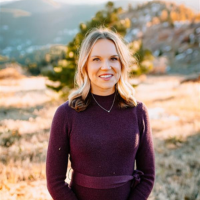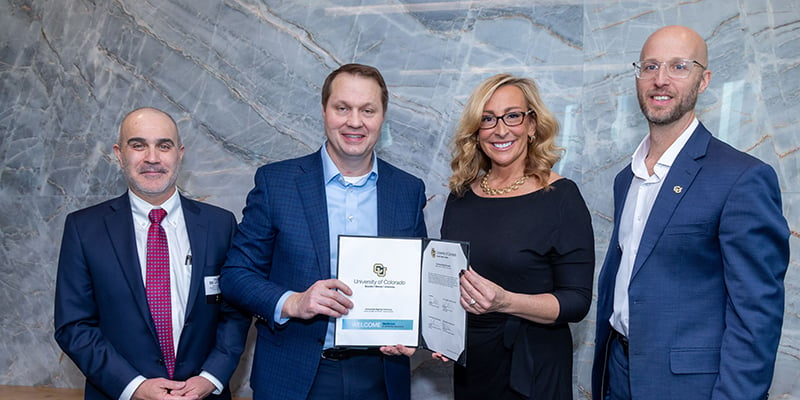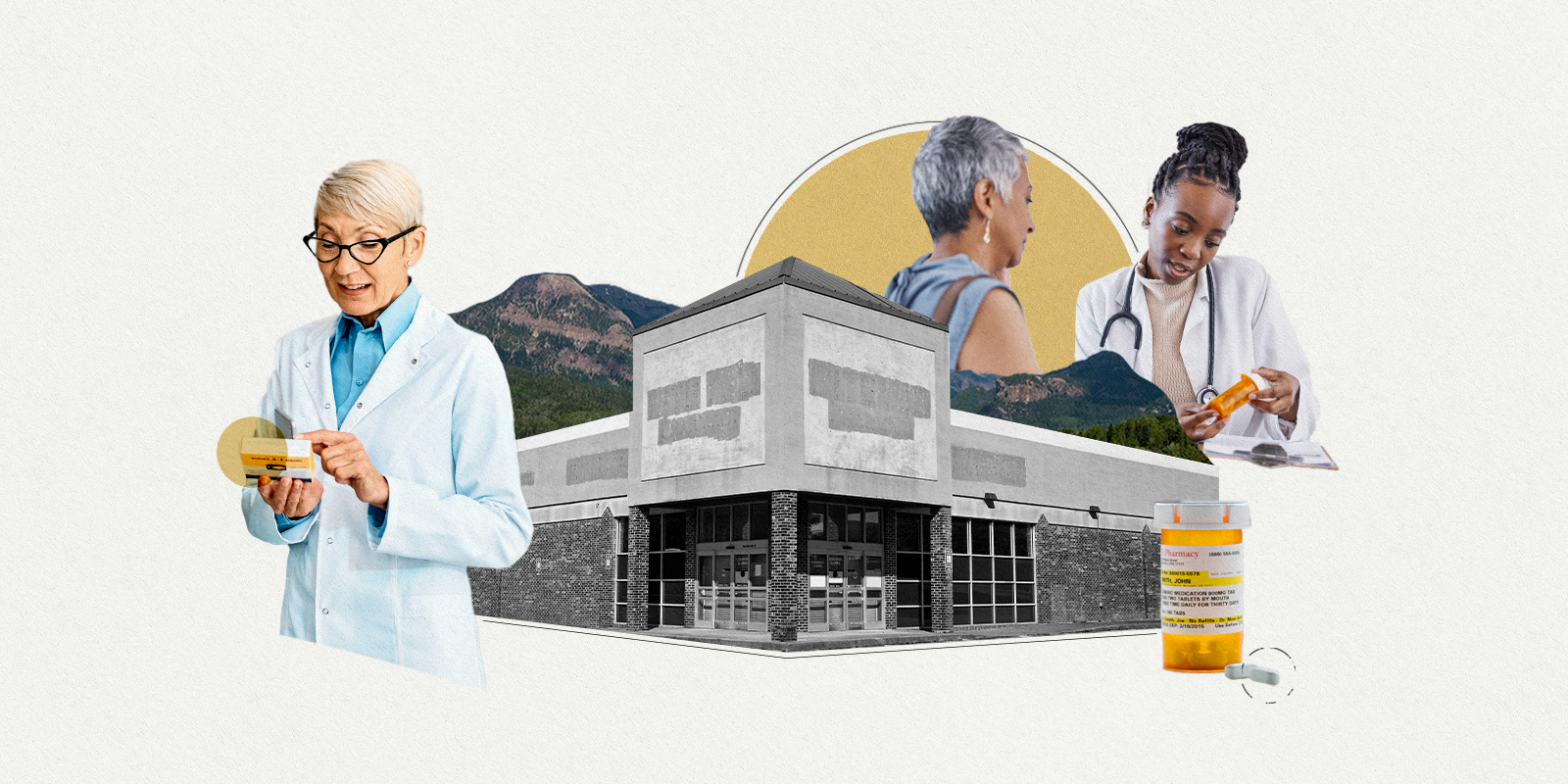How do you help cancer patients find the right type of mental health support that they need?
We like to get a good assessment of what they've been through medically as a starting point and then what the psychological ramifications are for them.
We offer a broad range of services. Our bread and butter is individual counseling, which is prescheduled therapy appointments. Most of our care is done via telehealth, which allows us to support patients throughout the state of Colorado.
For others, we have our closed and committed therapy groups where we get people together on a certain topic like parents with metastatic cancer, young adults with cancer, women with breast cancer, among others. It’s helpful for patients to come together as a community and talk about unique experiences that they've had related to cancer.
And then we have our psychoeducational group classes where we're teaching different skills that can help with managing the stress associated with a cancer diagnosis – such as a mindfulness class and a chronic pain class. We're working on a group to help with insomnia. We try to address a variety of common concerns related to cancer and ways that we can help from a psychological perspective.
Can you talk a little bit about the benefits of group therapy for cancer patients?
Oftentimes people with cancer feel isolated. They've been walking along in life with a common peer group, and then a diagnosis pulls them out of that peer group and into another one.
There are a lot of really great resources online, but of course you never know what you're getting. A lot of those websites aren't monitored, so they can inadvertently be a source of great distress. In our closed and committed therapy groups, we're aligning people with a common demographic or concern and then the same people attend for either six or eight weeks, so you don't have to reintroduce yourself every time.
The goal is to build connections and networking. Alongside reducing isolation, our groups can often be a great source of support and information. For example, there might be someone who's a little further along or saw a specialist in a certain area, so they're also sharing resources or ideas to help people with similar concerns they had earlier in their process.
Do you see patients that regularly withhold their diagnosis from their friends, family or coworkers? And what are some of the reasons that they list for withholding that information in the first place?
Disclosing a cancer diagnosis is very individualized. Timing is a huge component of it. It's really common for people to wait to inform people outside of their immediate support network until a full treatment plan is known. The person themselves often has a lot of questions and concerns and they don't know how to answer questions just yet.
And then what we see quite commonly is when you tell someone about a cancer diagnosis, the other person suddenly develops ‘foot in mouth syndrome.’ The first thing that the other person says is “Oh, my aunt had that. She just passed away at Christmastime.” So the person with the cancer diagnosis quickly learns it can be hurtful to share their news.
In the workplace is the most likely place that I've seen that people will choose to never disclose a cancer diagnosis. I've heard a variety of reasons. The primary one has been that they still want a place where they can be the person that they were before the diagnosis to preserve that old identity or feeling like their whole life isn't about cancer. It can feel psychologically right or safe for them to still have this dual identity.
On the other hand, is there relief or feelings of acceptance if someone does disclose their diagnosis?
It is highly specific to the individual and what the expected outcome is going to be given their context. As a general rule, most people do feel better after they share their cancer diagnosis, whether it's with a loved one or in a professional setting. But there can be places and times where that's just not going to be appropriate. On our team, we'll work together with patients on how to navigate within that so they can feel the best in that context.
How do you help patients with disclosing a diagnosis with different audiences?
Yeah, there's a lot of work that we will do to help people prepare. I often encourage people to come up with an elevator pitch essentially about their diagnosis: “So I've been diagnosed with this type of cancer. I'm in the middle of my chemo regimen. I'm expected to have surgery afterward. I have this website you can follow along, if you'd like, for updates. That's the best place to get information. There's also a list of ways to help. I'll let you know if anything else comes up.”
Having something quick and to the point and at the same time being able to predict those people who they know will be a more challenging conversation – whether they’ll say something unhelpful or have a big stress reaction. We work with patients to preempt that or work on different modes of communication so that there can be a little more protection for the person that's disclosing.
How do you help patients when the initial outpouring of support fades?
It can feel really scary and usually happens at some point during their active treatment – usually six to 12 months. Major life events start to happen for a support network or the thinking will be, “You rang the bell after radiation or chemotherapy; this is all behind you.” All the energy's kind of pulled in these different directions, and the patient’s support network tends to shrink at a time where people tend to really need a lot of emotional support.
Patients are often surprised by this. It's something that we'll work with them around specific asks or needs that they have to bolster that support network and how to communicate effectively about their emotional as well as practical needs.
A default response for a lot of people in support positions is: “Let me know if you need anything.” What’s a better question to ask?
I would love it if people started to just make concrete offers of help. This takes the onus away from the person to think through and then answer how they need help. A good example would be to say: “I'm going to bring you dinner. What night works best for you?” Or “I'm going to take your kids to the park this weekend. Do you prefer Saturday or Sunday?”
You are offering a very specific time and action, which leads to simpler responses for the person with cancer. Especially when patients are not feeling well in the middle of cancer treatment, they have so much else going on. People aren't going to respond to, “Let me know if you need help,” because that means they have to identify what the need is, then a time and a specific ask. But if you can cut a lot of that out for them, it tends to work really well.
Additionally, I think it's also worth noting that we have so many ways electronically to support people. If it feels weird to be specific about a date and time, send them a gift card to one of the meal-delivery services or a grocery store, so they can do online delivery. Alternatively, there's laundry services or cleaning services that can be helpful. I'm sure any of those would go over really well – things that are a helpful, action-oriented form of support.
Do you have any final advice for those supporting someone with a cancer diagnosis?
There’s power in listening. I think a lot of times the first word people think of with cancer is death. With the strides our colleagues in oncology have made over the past few decades, the majority of people who are diagnosed with cancer will go on to live really good lives for a long time. Recognize your own reactions to the word cancer and don’t put that on the person who's sharing their diagnosis with you. Give them space to talk and feel and respond however feels right to them. Understand that although their active portion of treatment might be over, there could be psychological and social changes that go on for years afterward. It's a really big thing to grapple with.
Note: This interview was edited for brevity and clarity.





